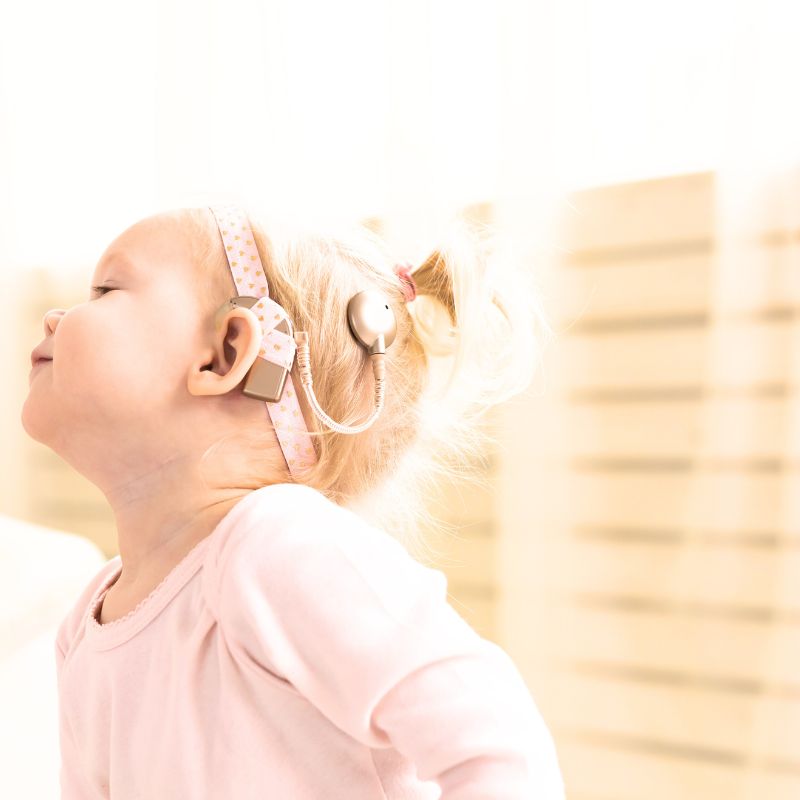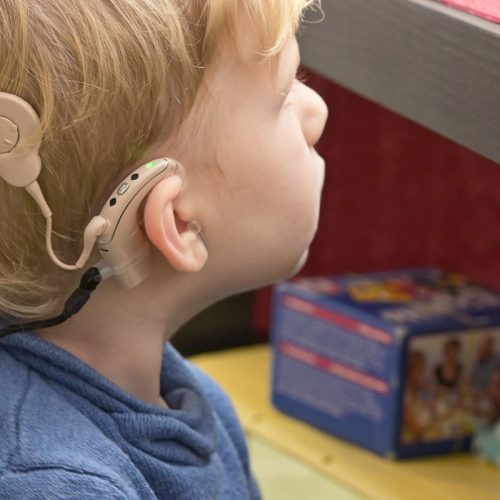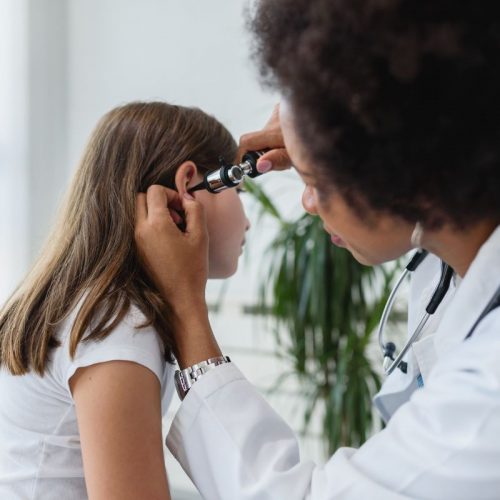
When to consider cochlear implants for children
If a child is suffering from hearing loss
Early intervention for children
Request an Appointment
If a child is suffering from hearing loss
A child is diagnosed with hearing loss if he / she can not hear sounds below a certain level of volume. Some children may suffer from mild hearing loss (unable to hear sounds below 25 – 40 dB), moderate hearing loss (41 – 60 dB), severe hearing loss (61 – 80 dB) and profound hearing loss (more than 81 dB).
The severity of the effect of hearing loss depends on the following aspects:
Children tend to develop speech in the early years of their life. Those who are born with hearing loss or develop it soon after birth, the impact of hearing loss on the development of speech is greatest in them.
Hearing loss ranges from mild to profound. The greater the severity of the hearing loss, the greater is the impact seen on the children.
The sooner a child is identified as suffering from hearing loss and the earlier he / she receives treatment, the greater the possibility of learning speech and lower the probable negative impact of the hearing loss.
Consult Dr. Shree Rao – Best Cochlear Implant Specialist in Hyderabad
Hearing loss in children can be congenital (present at birth) or develop later in childhood (acquired). Congenital hearing loss in children can either be hereditary or triggered by infections during pregnancy, including infections with cytomegalovirus or rubella. This is when cochlear implants for children should be considered.
The genetic or hereditary factors that can trigger congenital hearing loss are:
- Autosomal recessive hearing loss - When neither of the parents has a hearing loss, but each parent bears a recessive gene that gets passed to the child.
- Autosomal dominant hearing loss - When one parent bearing the dominant gene for hearing loss passes it to the child. This parent may or may not have hearing loss, but he / she might show other signs or symptoms of a genetic syndrome.
- Genetic syndromes - When hearing loss is caused by genetic syndromes like Usher syndrome, Treacher Collins syndrome, Waardenburg syndrome, Down syndrome, Crouzon syndrome, and Alport syndrome.

- Birth complications such as herpes, rubella cytomegalovirus, toxoplasmosis or other serious infections
- Lack of oxygen
- Requirement of a blood transfusion
- Premature babies who weigh less than three pounds and require life-sustaining for breathing
- Nervous system or brain disorder
- Drugs known as Ototoxic used by the mother during the pregnancy
- During pregnancy the mother had an infection, including diseases like toxoplasmosis, cytomegalovirus, herpes simplex or German measles
- Maternal diabetes
- Drug or alcohol abuse by the mother during pregnancy
- Smoking by the mother during pregnancy
- Perforated eardrum
- Otosclerosis
- Meniere’s disease
- Infections such as meningitis, measles, mumps or whooping cough
- Consuming medications that can cause hearing loss
- Serious head injury or trauma
- Exposure to loud noise
- Untreated or repeated ear infections (Otitis media)
- Exposure to secondhand smoke or other toxins
Early intervention for children
A good intervention plan will include close monitoring, follow ups and any changes needed in the process. There are various options of early intervention for children with hearing loss.
Consult Dr. Shree Rao – Best Cochlear Implant Specialist in Hyderabad
The early intervention options include:
- Engaging with a professional or a team who can aid a child and its family in learning to communicate
- Getting a hearing device such as a cochlear implant for the child
- Joining support groups to understand the situation better
- Learning from other resources available to children with hearing loss
- Hearing loss impairs a child’s ability to form speech, language, and social skills. The earlier a child who is deaf or hard of hearing starts receiving help, it is more likely that his / her speech, language, and social skills will reach full potential.
- Early intervention plans for children help them with learning language and other important skills. Researchers have found that early intervention can considerably improve a child’s condition.
- Babies who are detected to be suffering from hearing loss should begin to get intervention services at the earliest, but no later than the age of six months.



